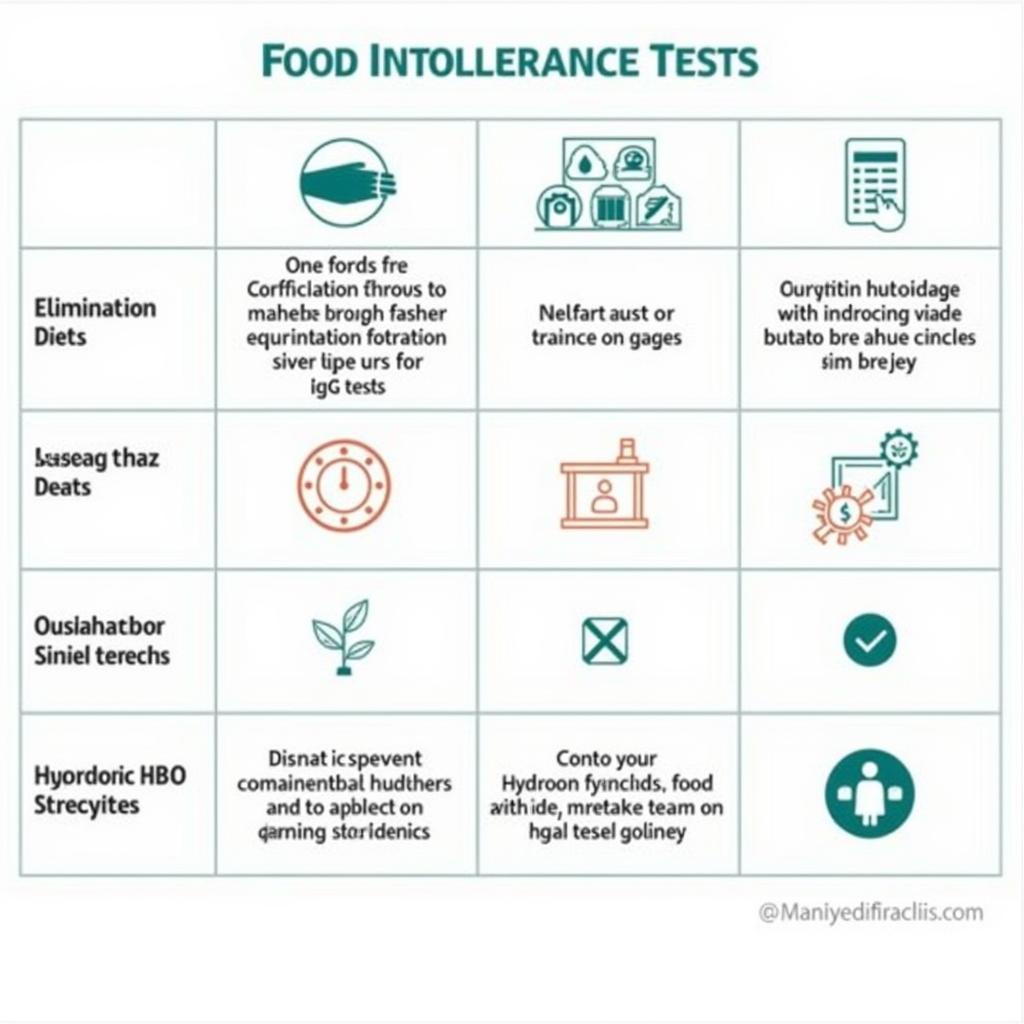Navigating food sensitivities can be a tricky path, often filled with trial and error. Many individuals turn to food intolerance tests, hoping to gain clarity on which foods might be contributing to their discomfort. One such test is the Carroll Food Intolerance Test. But how accurate is it? Let’s delve into the details and explore the efficacy of this particular method.
 Carroll Food Intolerance Test Kit
Carroll Food Intolerance Test Kit
The Carroll Food Intolerance Test is a blood test that analyzes your IgG antibody reactions to a variety of foods. The premise is that elevated IgG levels against certain foods indicate an intolerance. While this approach sounds promising, it’s essential to understand that the scientific community doesn’t universally endorse IgG testing for food intolerances.
Understanding Food Intolerance vs. Food Allergy
Before we dive deeper into the accuracy of the Carroll Food Intolerance Test, let’s distinguish between food intolerance and food allergy. A food allergy triggers an immediate immune response, often involving IgE antibodies, and can result in severe, potentially life-threatening symptoms like anaphylaxis. On the other hand, food intolerance involves difficulty digesting specific foods, usually due to enzyme deficiencies or sensitivities to certain compounds. Symptoms tend to be less severe and delayed, appearing hours or even days after consuming the trigger food.
The Controversy Surrounding IgG Food Intolerance Tests
The Carroll Food Intolerance Test, like other IgG-based food intolerance tests, faces criticism regarding its reliability. While IgG antibodies are part of the immune system’s response to food, elevated levels might simply indicate prior exposure to a particular food rather than a true intolerance. Some experts argue that these tests could lead to unnecessary dietary restrictions, potentially causing nutritional deficiencies and anxiety around food.
 Different Types of Food Intolerance Tests
Different Types of Food Intolerance Tests
What Does the Research Say?
Several studies have investigated the accuracy of IgG food intolerance tests, and the results remain inconclusive. Some studies suggest a potential correlation between IgG levels and symptoms, while others haven’t found a significant link. More rigorous research is needed to validate the effectiveness and reliability of these tests.
Alternative Ways to Identify Food Intolerances
Instead of solely relying on IgG tests, consider these alternative approaches to pinpoint food intolerances:
- Elimination Diet: This method involves removing suspected trigger foods from your diet for a period, then gradually reintroducing them one by one to observe any reactions.
- Food Diary: Keeping a detailed food diary can help identify patterns between food consumption and symptom onset.
- Hydrogen Breath Test: This test measures hydrogen levels in your breath, which can indicate carbohydrate malabsorption, a common cause of food intolerance.
- Consultation with a Registered Dietitian: A registered dietitian can provide personalized guidance based on your medical history, symptoms, and dietary needs. They can help you create an elimination diet plan and offer support throughout the process.
The Carroll Food Intolerance Test: A Tool for Exploration, Not Diagnosis
While the accuracy of the Carroll Food Intolerance Test remains debatable, it can serve as a starting point for identifying potential food triggers. However, it’s crucial to interpret the results cautiously and avoid making drastic dietary changes based solely on the test findings.
Remember, managing food intolerances requires a multifaceted approach. Combining the information gleaned from a test like the Carroll Food Intolerance Test with professional guidance from a healthcare provider and a registered dietitian can lead to a more comprehensive understanding and effective management of your dietary needs.
FAQs about Food Intolerance Tests
1. Are food intolerance tests covered by insurance?
Insurance coverage for food intolerance tests varies depending on your provider and plan.
2. How long does it take to get results from the Carroll Food Intolerance Test?
Results typically take one to two weeks to be processed and sent to your healthcare provider.
3. Can children take the Carroll Food Intolerance Test?
Yes, the test is available for both adults and children.
4. What should I do if I suspect I have a food intolerance?
Consult your doctor or a registered dietitian. They can assess your symptoms and recommend appropriate testing or dietary interventions.
5. Are food intolerance tests a one-time solution?
Food intolerances can change over time, so retesting might be necessary in the future.
Need More Information?
We understand that navigating food sensitivities can be complex. For personalized guidance and support on your journey towards better digestive health, don’t hesitate to reach out to our team. You can contact us at Phone Number: 02437655121, Email: minacones@gmail.com, or visit our location at 3PGH+8R9, ĐT70A, thôn Trung, Bắc Từ Liêm, Hà Nội, Việt Nam. Our dedicated customer support team is available 24/7 to assist you.
Interested in learning more about food sensitivities and other health topics? Explore our website for insightful articles and resources.